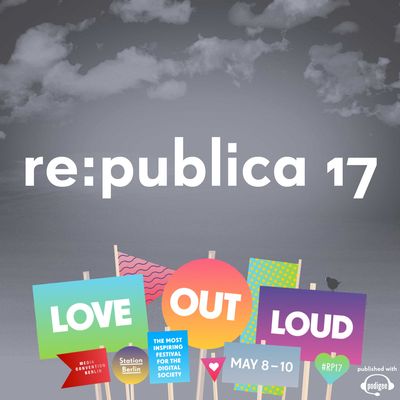re:publica is one of the largest and most exciting conferences about digital culture in the world. Since its foundation in 2007, it has grown from a cozy blogger meeting with 700 participants into a wide-ranging “society conference”, with 8.000 visitors at the anniversary edition re:publica TEN. Representatives of digital culture share their knowledge and decision-making tools, and discuss the future of the information society. Here they can mingle with activists, scientists, hackers, entrepreneurs, NGOs, journalists, social media and marketing experts, and many others. This fosters innovation and creates synergies between net politics, online marketing, network technology, digital society, and (pop) culture. What is more, around 46 percent of re:publica speakers are female – far more than at many other similar events.
https://republica17.network.podigee.io/
episode 46: Blockchange – How Science Revolutionizes Democracy, Work and Nature Using Blockchain (en)
Blockchain technology changes more than the financial industry. Scientists have proposed revolutionary concepts for managing our democracy, forests and other natural systems as well as the way we work. Discussing potential benefits and risks, Thomas Wagenknecht introduces “Futarchy” and similar DAO governance models to change political systems, “terra0” which proposes a self-owned augmented forest and a concept to compensate founders and employees.
- Thomas Wagenknecht
Blockchain technology drives a decentralization revolution across various areas of our lives. While the financial industry has certainly been most affected, entrepreneurs, artists and scientists have now begun to explore the potential of blockchain-based systems elsewhere. In this talk, Thomas Wagenknecht, a scientist at FZI Research Center for Information Technology, presents three applications of the blockchain - in the future of work, for forests as well as new models for democracy.
He introduces three diverse cases. First, Thomas talks about an approach to compensate start-up founders using a Blockchain-based framework. Moreover, he discusses the potentials of “terra0,” an augmented forest that owns itself thanks to smart contracts. This concept significantly questions human relationship and management of natural resources, posing several research challenges for philosophy, information systems and ecology. Finally, Thomas examines the value of governance models like “Futarchy” for our political system. While these prediction market-based ideas proposed by leading academics have promising elements to improve public governance, they also fundamentally challenge core values of our democracy.
Are the benefits of these revolutionary concepts greater than their risks? What's fiction and what can become reality? What are the main obstacles to implementation? And how can scientists best cooperate with artists, developers and entrepreneurs?
